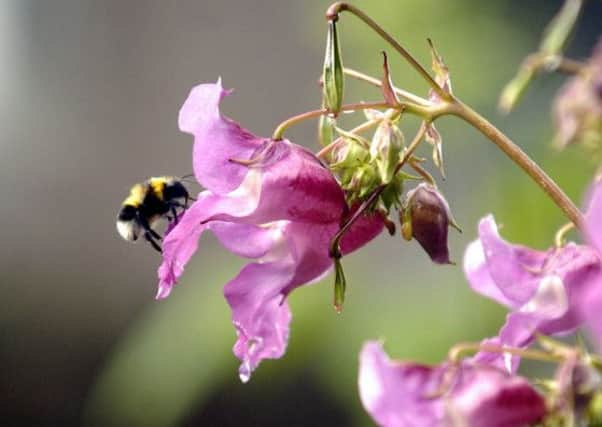Dundee bee scientist wins Stephen Fry award


Dr Christopher Connolly, a Reader in the Division of Neuroscience at the School of Medicine, received his award during the university’s annual Discovery Days event.
A university spokesman said: “The accolade recognises his role in working with external stakeholders during the course of his research as well as the enthusiasm he has displayed in disseminating the results to the public.
Advertisement
Hide AdAdvertisement
Hide Ad“Dr Connolly investigates the chemistry behind nerve activity and the ability of the brain to adapt to our different physical and social environments. This has led to work exploring how alterations in nerve cells can relate to chronic neurological conditions, in both humans and insects.”
He added: “His recent research has focussed on insect pollinators that provide essential ecosystem services and make an estimated contribution of $216 billion to worldwide economies every year while supporting the production of much of the world’s food.”
Dr Jon Urch, Public Engagement coordinator at the university, said: “Chris Connolly has established himself as the UK’s leading expert on bee biology and populations, but in order to do this he had to build relationships with a variety of stakeholders that has enabled him to carry out vitally important research.
“In addition, Dr Connolly has demonstrated a commitment to raising awareness about the risks associated with using pesticides and a willingness to engage with the public to illustrate the importance of this issue.”
He added: “The collaborative and interdisciplinary projects will hopefully help to arrest the decline in the number of pollinators and transform lives across the world.”